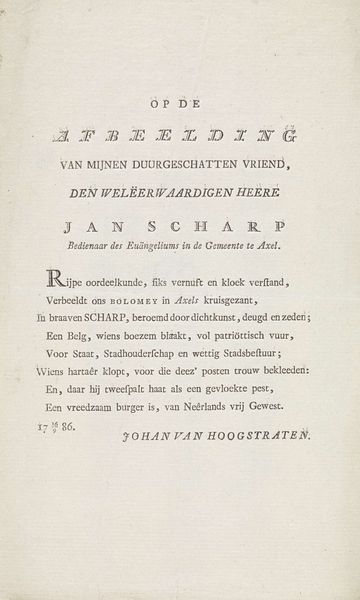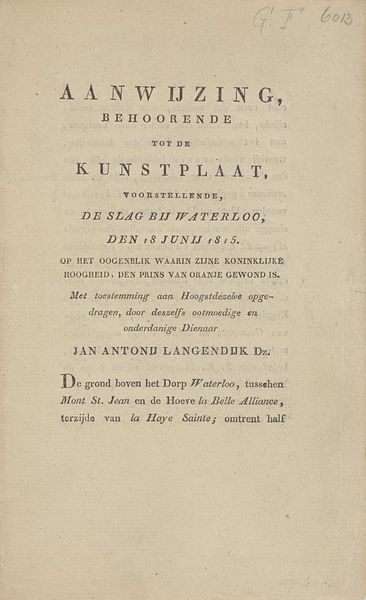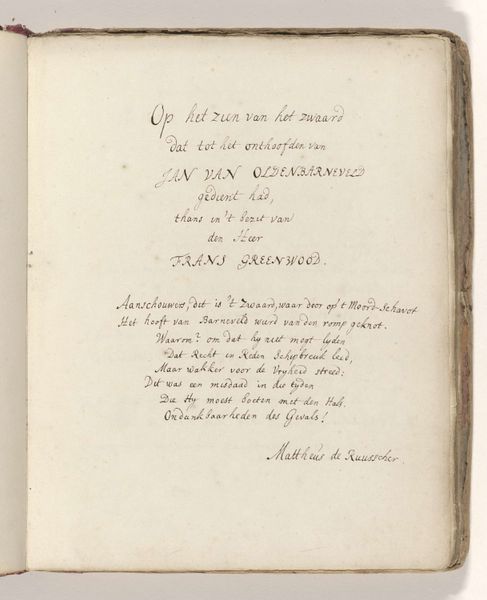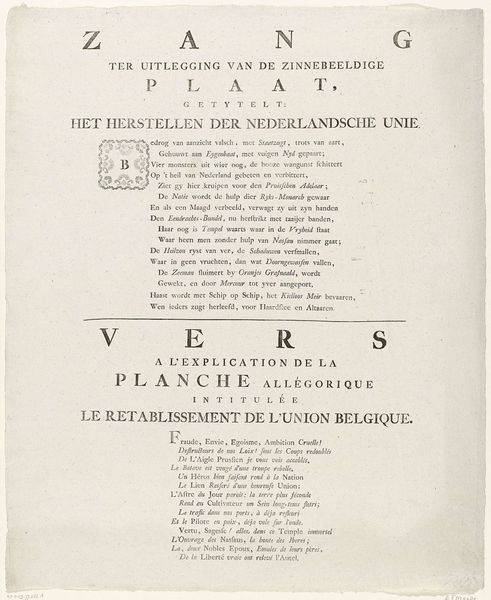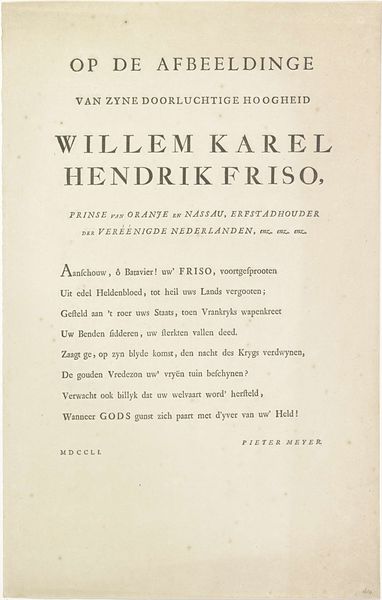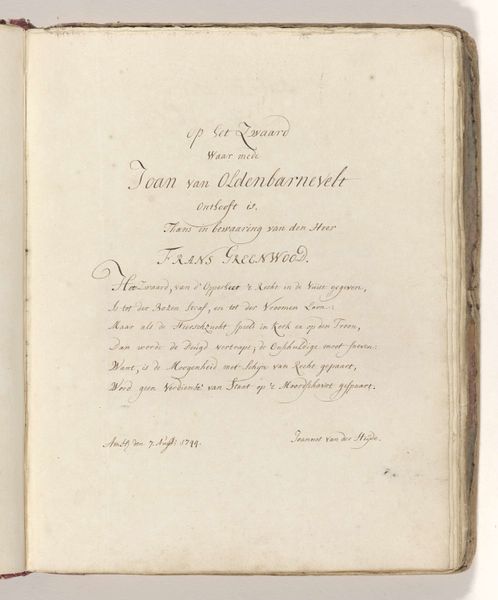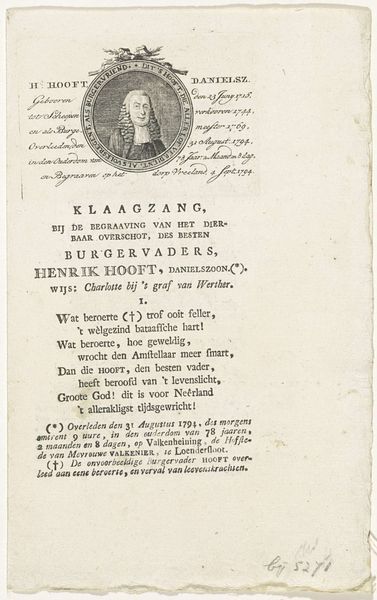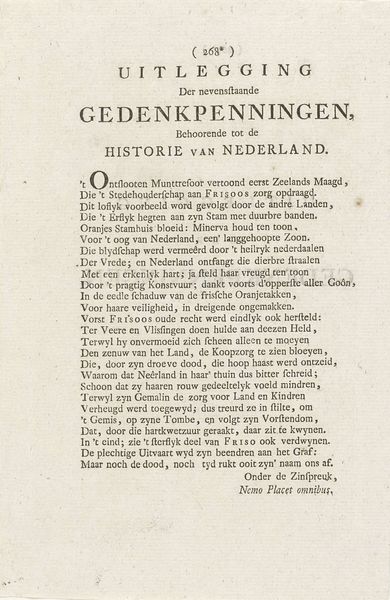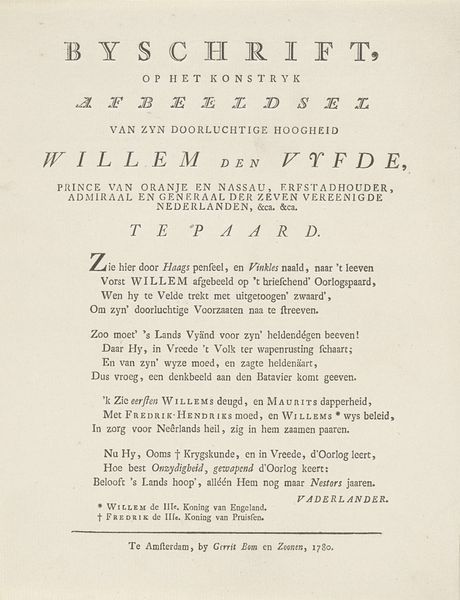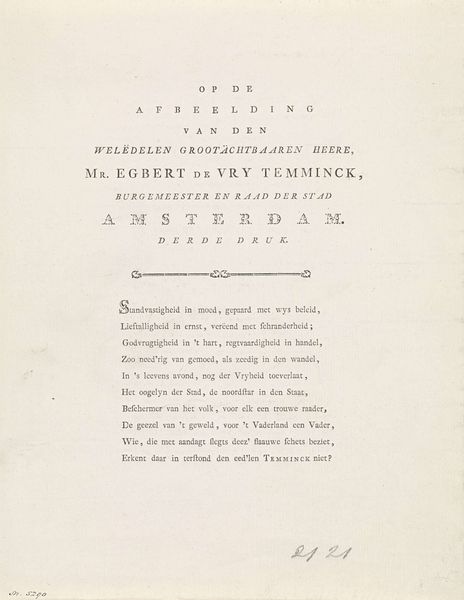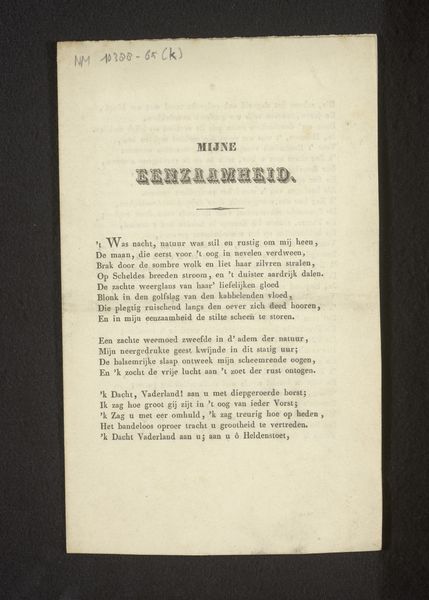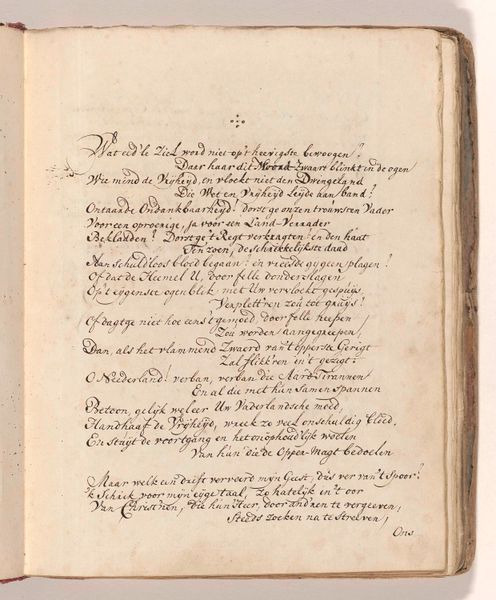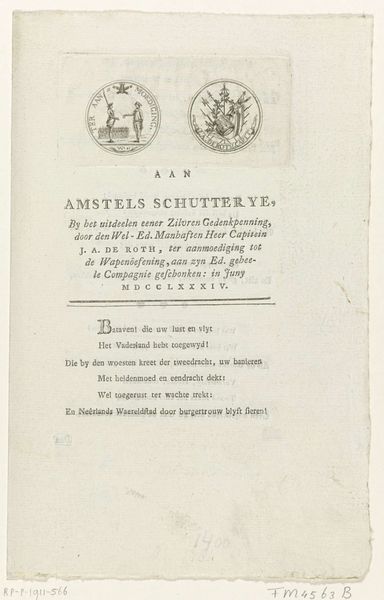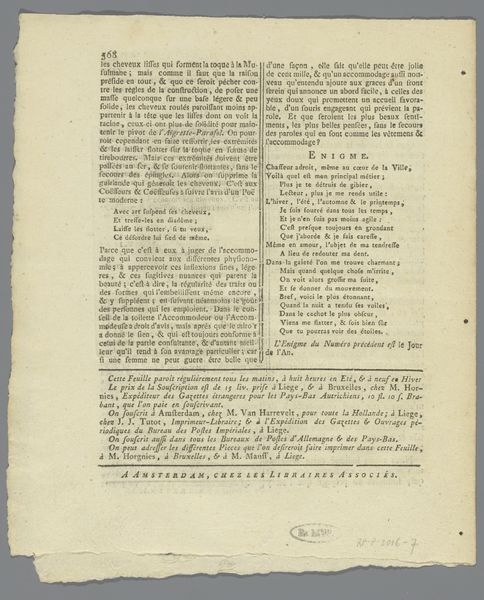
print, textile, paper
#
neoclacissism
# print
#
textile
#
paper
Dimensions: height 217 mm, width 142 mm
Copyright: Rijks Museum: Open Domain
Curator: This print, titled "Verklaring in versvorm bij de prent: Onsterfelijke helden," or "Explanation in Verse for the Print: Immortal Heroes," was created in 1787 by Thomas van Limburg. It combines paper and possibly textile elements in its construction. Editor: It feels very much of its time—orderly, contained, and with a solemn tone, if I’m interpreting the textual elements correctly. It feels like a call to acknowledge history. Curator: Yes, the work aligns with Neoclassical ideals of the era, favoring order, reason, and a return to classical themes of heroism and virtue. We can read the textual elements as reinforcing a dominant cultural narrative. I wonder how we can see the immortal heroes and the “brave maid” referenced within this context of national identity formation. Editor: You know, I see how institutions have often upheld this particular heroic narrative while simultaneously obscuring other voices. In thinking about this print, it also forces me to ask who dictates how and why one becomes "immortal". Curator: Precisely. We must consider whose stories are deemed worthy of memorialization. Examining the print's role in propagating specific socio-political values raises important questions about power dynamics, then and now. The 'blindfold' referenced seems to be some metaphor we can interpret today. Editor: Thinking about it critically, the 'blindfold' perhaps symbolises those that do not recognise such Heroes, but how much agency do those Heroes themselves hold in controlling their stories? Curator: An important reflection. Examining the context around Thomas van Limburg offers valuable clues about the sociopolitical forces that molded artistic and popular perception. Editor: Agreed. By exploring the history surrounding this print, and viewing it through lenses that include gender, race and the cultural factors that played their part, we will gain insight that prompts dialogue that's still relevant today. Curator: And maybe those new discussions, that challenge, is part of being 'immortal'.
Comments
No comments
Be the first to comment and join the conversation on the ultimate creative platform.
